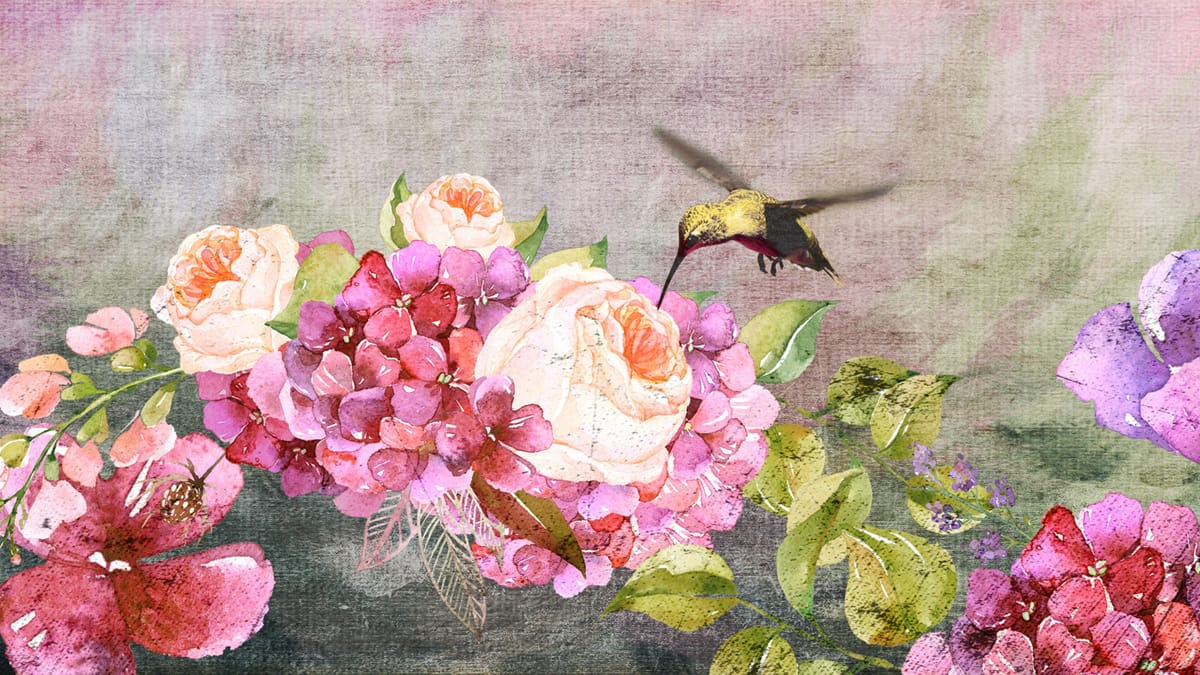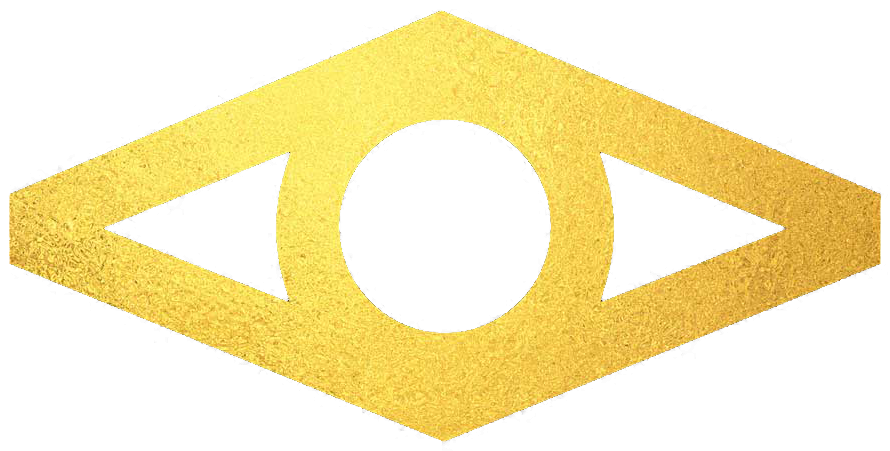Why we need to look through the lens of healing and regeneration

A very happy new year to you!
2025 is already shaping up to be another interesting and pivotal year for our world. As we continue our collective journey into the New, here’s what I’d like to propose we all prioritize this year. Everything that we do, individually and collectively, needs to be accomplished through the lens of healing and regeneration.
Let me explain.
As a child growing up in New Zealand, I spent a great deal of time barefoot in nature on my parents’ steeply sloped and forested backyard that joined the city town-belt, which went all the way down to the sandy beach at the bottom. Wellington, the capital city of New Zealand where I grew up, is perched on steep hill sides and a large ocean bay with gale force winds constantly blowing through. Many visitors are intimidated by the force and wildness of nature there.
Yet despite the natural beauty all around me, I grew up with a sense that the peak of natures’ youthful vitality was long behind us. I felt we were living in the long autumnal season, just as Tolkien’s Elves described the great forests of Lothlorien, never to show their spring magnificence again.
New Zealand nature represents more of an ancient, prehistoric past, a great wordless speaking of what once was. That was my constant impression as a child. I marveled over the delicacy and extraordinary beauty of the native wildlife, but could not shake the feeling that it’s power and beauty would continue to fade, slowly and inexorably.
This observation made a deep impression on me, and it, coupled with a dive into the evolution of consciousness through Rudolf Steiner’s lens, filled me with a certainty that as nature goes into the time of its autumn, humans must step up more consciously and actively take over what was formerly done for us by the wisdom that lies behind nature and the manifest world.
I’ve since drawn the conclusion that we have to learn to think in terms of regeneration in everything we do. Or, to put it more bluntly, healing.
This applies to agriculture, conservation, and all things environmental — but also and in particular, I believe we need to think in terms of healing in all things human and society.
We are at an interesting time in the evolution of consciousness; in my view this observation I made as a child is the world-directing spiritual powers stepping back to allow humanity more freedom, more choice. They are saying to us: it’s up to you, to make of things what you will. Not, as might be easily believed, that our planet is dying and we’re dying with it.
Instead, I propose that we are being asked to step up, step forward into a greater degree of responsibility, to think in terms of healing the soil, the water, and all of nature so ravaged by human thoughtlessness and the march of evolution. The threat is that if we don’t, we really will perish. But if we do step up, then there is the potential to forge a whole new and wonderful relationship to our planet that looks a lot more like participatory and loving collaboration than we’re capable of today.
This would necessitate in us a process of healing our consciousness, and thus deepening into the kind of wisdom that we badly need — and I believe are destined to eventually accomplish.
More participation, less normal
Nature herself is asking for more participation from us, and so also is our human society which is in a free-fall of cultural crises. We face vast troubles with fractured politics, endless wars, growing government surveillance, and materialism eating away at our spiritual core.
I think we are at a time in the unfolding of the future where we must bring more consciousness to what we do. It’s time that we get to know WHAT we think.
And I mean on a daily, an hourly basis. What goes through our minds habitually, just below the radar? For what we think is shaping the world around us. What we tolerate as individuals without really thinking about it is leading toward our collective ruin.
We can apply more consciousness to life and work than we are accustomed to, and certainly more than is expected of us by societal norms. We need to learn to think for ourselves, instead of remaining complacent and satisfied with status quo, or what others want us to think. This is the healing work I’m talking about.
Imagine, if you will, that we think through the moral consequences of organization design where we take the time to observe what outcomes, from subtle to outrageous, arise from prioritizing shareholder return above all else. What is it like to struggle with hierarchies of power that get in the way of efficiencies, or have to waste time managing office politics, or figure out how to deal with ongoing conflict and bad behavior?
How do you show up, yourself, in situations that tend to compromise you? What are your habitual thoughts and reactions? Are you conscious of what goes on in you, other than possibly resentment or anger? What is going on underneath that? Maybe more complex and nuanced feelings not yet identified, and certainly beliefs and conclusions you've drawn about yourself, or the other, or the situation.
What do you tolerate at work?
This tolerating of the status quo, for example a toxic workplace, is just another way of making my point about healing. It is a question of healing in the realm of the soul or the inner life.
This is because our soul, if left unexamined, will reproduce via our thinking, feeling, and willing our internalized beliefs and worldviews, our habitual feelings and tendencies there, and our typical behaviors and choices.
We absorb these in unconscious ways as children embedded in a family and cultural legacy and will continue to give them life so long as they remain unconscious in us. To briefly give a dramatic example of this: abusive behaviors are most often passed down through families of origin. Simply put, hurt people will hurt people.
Poor workplace culture is a picture of unconscious assumptions, internalized beliefs and worldviews, outcomes of ill-conceived workplace design, and of how much we tolerate certain behaviors that arise as a consequence.
Why else do you think an organization — or a geographical region, or any human society really — has the culture that it has?
Healing is the new normal
As an adult I’ve spent much of my time thinking about healing in the effort to help others with personal and relational wounding, soul addictions, and dysfunctional patterns playing out in their lives.
I’ve learned a couple of things:
- That inner work is really difficult to do. We have very little successful modelling in the commons for it, and our understanding of psychology is clearly inadequate as is evidenced in the exponential rise in mental health issues.
- That it’s the single most important thing we can do in our lives.
Its both the most difficult, and the most important.
Why is this? In my opinion, everything flows downhill from what we harbor in our soul-life. Our worldviews are built and maintained out of our beliefs about who we are and how the world is. In other words, we project our beliefs onto the world around us. This is how we create our realities as adults. We make choices and decisions that lead us to exactly where we are.
What follows from there is to become more awake to what we actually think — not as easy as it sounds by any means. And the more awake we become, the more we see how the contents of our inner life is shaping our reality. But not only our own, we collectively create the reality we live in whether we know it or not.
Consciousness is humanity's single greatest gift — and downfall.
I’ve referred before to Emerson’s quote: “the master ideas reigning in the minds of many persons” to explain how it is we can believe that a little pollution from those Tide laundry pods is ok, or that farming with chemical inputs grows healthy food, or that weather manipulation doesn’t impact climate change, or that war is necessary or justified.
Healing the world IS healing our inner life
The healing of the checkmates of life that lead to much suffering, and the healing of wounds, patterns, addictions, and pain takes inner work. It is also the way we’re going to heal our work-spaces of dysfunctional, even toxic, cultures.
And, moreover, if we DON”T prioritize inner work and healing, then we ARE going to get dysfunctional cultures because, just like nature is in its slow and inexorable decline, so is our social fabric. We are witnessing the corruption of the myriad conceptual constructs that have kept all the current social systems active, and the consequential breakdown of everything we used to depend on: healthcare, government bureaucracy, economy, roads, safety, policing, politics, corporations, trust.
Until of late, we expect life to run along without our full participation and engagement, that life happens TO us instead of created BY us.
But, I propose that we can and must focus on our own inner realm and turn it into a garden; pull out the weeds and peer into unexamined corners. Compost what isn’t serving us and create space for something new to grow.
However, this is where the nice gardening analogy ends because really the main activity in inner development is taking responsibility for our inner condition which is leading to our outer condition. The world is always a mirror. This is a fierce and difficult truth.
If you and I can do this kind of healing and inwardly regenerative work, then we will find ourselves no longer willing to tolerate what we’ve up until now allowed, and can work together to change things in our sphere of influence. I can’t do much alone, but together with you we can do something meaningful. Get a significant number of conscious people together and then you can have real change.
However, change within and change in the world is not what many people think it is, which is getting into action around issues. I guess ultimately it IS about getting into action, but only and IF the healing comes first. If the action comes from a place of healing and regeneration, then we’ll have the right maturity and orientation to the problems. We’ll understand that the change has to happen first and foremost in us — in the ways we think, we feel, and behave in relation to each other and the world.
Only then will we truly be living in a world that can revive and regenerate through the active and activated participation of humanity.
